Premium Only Content
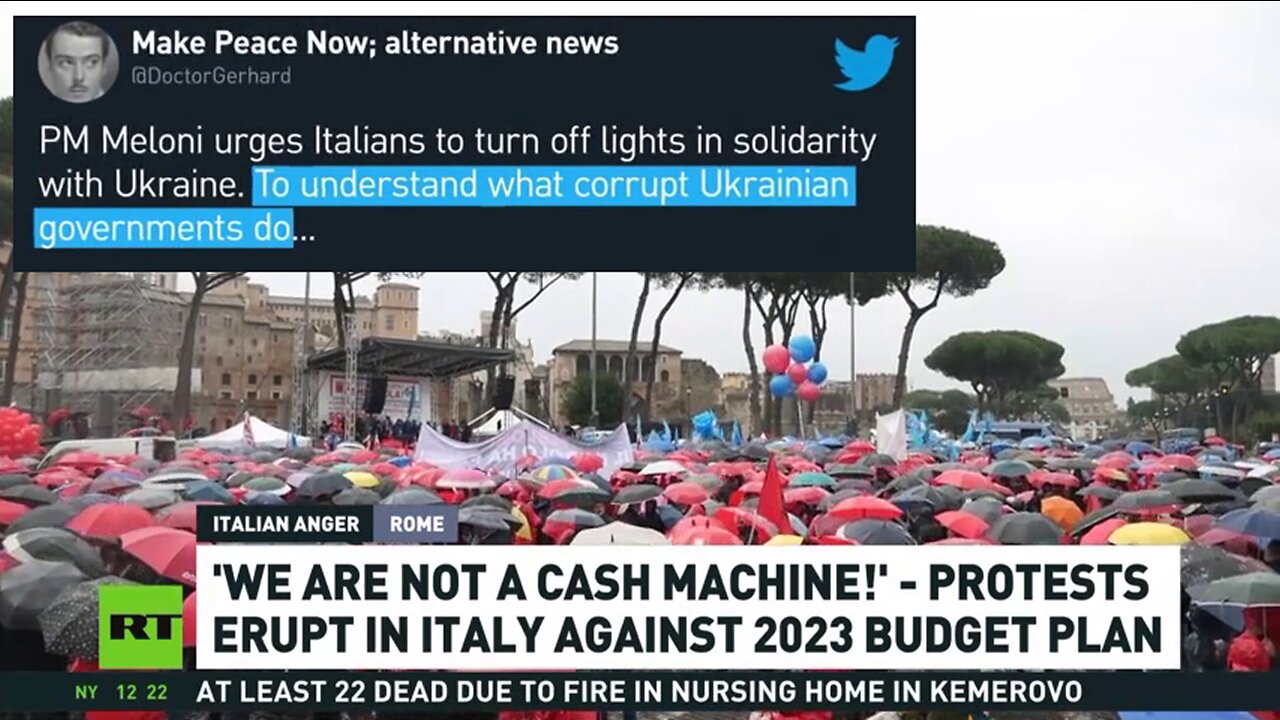
RT News - December 24th 2022 Late
Three dead as Ukraine continues the shelling of civilian areas in the Russian Donetsk and Lugansk republics, leaving residential buildings in ruins. RT reports from the ground.
Russia air forces repelled another drone attack on Crimea.
Pro-Kurdish protesters flood the streets for a second day after a shooting at a community centre leaves three people dead in what local Kurds branded a terrorist attack.
An entire generation in Africa is said to be under threat, as hunger and healthcare crises are set to worsen on the continent, according to international watchdogs.
China: Beijing has lashed out at US funding of arms to Taiwan, saying it undermines security in the region.
Ukraine presidential advisor is off on another rant, this time it's about Iran's supply of drones to Russia - except there aren't any. A small batch was traded well before the start of the military Special Operation in Ukraine. The accusations have been going on for months without evidence and are seen by both Russia and Iran as an excuse for more sanctions.
Italians kick back at the suggestion from their new prime minster to turn the electricity and other power off "for Ukraine". Protests all across the country too place on Friday. (Recall the protests from late last month and earlier this month, where people were protesting for days at a time over cost of living, inflation and unpayable energy bills, which have caused many businesses to close, leaving many unemployed and the cycle just continues)
Paying to play: How USA considers Ukraine's $billions "a good investment" - Hillary Clinton. Report.
QS: wishing everyone on Earth a peaceful, warm, Merry Christmas and a healthy, prosperous and peaceful 2022.
===============================================
Below: 1) --- Japanese firms to halt shipping insurance for Russia – media
2) --- Feature: War of the churches: How Ukraine has become unsafe for millions of Orthodox believers
3) --- Moscow outlines plans for joint force with key ally
4) ---- Major lithium producer tightens export controls
5) --- Former NATO commander urges long-range weapons for Ukraine
6) --- More Brits not paying their bills – research
7) --- PM Sunak asks homeless man if he ‘works in business’
===============================================
via RT website 24 Dec, 2022 15:28
1) --- Japanese firms to halt shipping insurance for Russia – media
The decision could impact Tokyo’s oil and gas imports
Three Japanese companies will stop providing insurance services for war damage to vessels in Russian waters, the Nikkei news outlet reports on Friday, citing unnamed sources.
The decision was reportedly prompted by reinsurance companies refusing to take on risks related to the military operation in Ukraine, launched by Moscow on February 24.
Tokio Marine & Nichido Fire Insurance, Sompo Japan Insurance and Mitsui Sumitomo Insurance have reportedly started notifying ship owners of plans to stop providing coverage for war damage anywhere in Russian waters, including the country’s Far East, which is thousands of kilometres from the conflict zone. The measure comes into effect on January 1.
Before sailing through Ukrainian or Russian waters, ship owners are currently obliged to sign up for extra war damage insurance. Providers have to be notified in advance to follow up on terms for payouts and premiums. Starting next year, ship owners will no longer have that option from the three Japanese firms.
According to the newspaper, Japanese imports of liquefied natural gas from Russia’s Sakhalin-2 project and elsewhere could be affected by the inability to secure coverage, resulting from the decision.
In September, the Group of Seven nations agreed to impose a price ceiling on exports of Russian sea-borne oil, as part of Ukraine-related sanctions. In early December, the limit was agreed upon by the G7 countries, the European Union and Australia at $60 per barrel. Under the decision, marine insurance and other services for ships are prohibited when transporting oil purchased above the set threshold. In response, Moscow pledged to ban oil sales under contracts that specify a price ceiling.
Tokyo has supported the price limitation, calling it an effective tool for reducing Russian energy revenue. At the same time, Masahiro Okafuji, the head of the Itochu company, which participates in the Sakhalin-1 project via the Sodeco consortium, said in November that Japan was not able to survive without oil and gas imports from Russia.
Japanese companies announced plans to maintain participation in the Sakhalin-1 and Sakhalin-2 gas projects after the anti-Russia sanctions were imposed, and President Vladimir Putin gave orders to transfer the project, which was previously managed by US oil giant ExxonMobil, to a domestic entity.
https://www.rt.com/business/568863-japanese-insurance-russia-waters-vessels/
===================================================
23 Dec, 2022 19:29
2) --- Feature: War of the churches: How Ukraine has become unsafe for millions of Orthodox believers
Why Ukrainian nationalists and the state persecute parishioners of the country’s largest church
“If you believe in God, I beg you, leave the church, let me bury my son!” a grief-stricken woman screams, kneeling in the snow in front of the priest. He is surrounded by Ukrainian officials and territorial defense fighters who are there to help him seize the church. A woman begs him in Ukrainian to stop. Her son, who went to the front and died in the battles for the city of Bakhmut, prayed in this church, and now the mother wants to bid him goodbye. “You didn't let me pray in front of the icon yesterday, your men beat me up. I beg you to leave, let me bury Volodya!”
Both the woman and the priest are Orthodox Christians, but decades, and even centuries, of political and ecclesiastical turmoil on the territory of modern Ukraine has created a chasm between believers which has grown wider since Russia’s military offensive began, earlier this year. https://youtu.be/sTrB0TP6YW4
In Ukraine, which is considered an Orthodox Christian country, not all believers feel comfortable and safe. This is because of actions of the state.
RT explores why Kiev has forgotten Christianity’s vow of “love thy neighbor,” and why believers are ready to use force against their own.
Strangers among their own
Historically, the religious situation in Ukraine has always been tense. Every political crisis has led to a split in the church: the very formation of the state, the 2014 Euromaidan, the creation of the new Orthodox Church of Ukraine in 2018.
Ukraine has never had a united Orthodox church, and the nationalist-minded part of society has long been seeking one. The canonical Ukrainian Orthodox Church of the Moscow Patriarchate (UOC-MP) has for many years been the most active denomination, but has been forced to fend off accusations of “working for Moscow” because of its formal subordination to the Russian Orthodox Church.
Russia’s attack has provoked a round of aggression against the UOC, with accusations of it “working for Russia” and “serving the Kremlin” heard with renewed vigor. Meanwhile, Kiev has made the fight against the UOC political.
Immediately after the start of the military operation, the seizure of churches by force began in many regions of Ukraine. In March, armed supporters of the Orthodox Church of Ukraine (OCU), formed under the previous president, Petro Poroshenko, disrupted a service in the Pokrovsky Church of the Cherkasy region. They started a fight, attacked the priest, and dragged him out of the church. On March 7, the OCU seized the Anno-Zachatievsky Church in the Ivano-Frankovsk region. Opponents of the UOC came to the church, expelled those in attendance , calling them “parishioners of the aggressor" and changed the locks on all the doors. https://youtu.be/ZSberQqpTm0
A major scandal occurred this month in Ivano-Frankovsk. A church service was held with the participation of the new local bishop Nikita Storozhuk at the only UOC cathedral in the city. During the service, opponents of the UOC broke into the church to arrange a provocation and disrupt the service. “Away with the Moscow priest,” “Moscow KGB get back to Moscow,” shouted the provocateurs, who gathered at the call of the adviser to the mayor of Ivano-Frankovsk, Nazar Kishak. Some believers left the service with bloody faces, broken noses, and other injuries.
Violent seizures of churches in Ukraine have become a regular occurrence. From February to August, over 250 churches across the country were seized by supporters of the OCU, according to the information and educational department of the UOC. Official statistics for the entire duration of the conflict have not been disclosed yet.
The church is also under pressure from the state. Many monasteries in Ukraine have been raided: the Kiev Pechersk Lavra, the Koretsky Holy Trinity Monastery, the Cyril and Methodius Convent. Recently, the Security Service of Ukraine (SBU) announced raids in three dioceses of the country – in the Zhytomir, Rovensk, and Transcarpathian Regions, with the Cherkasy and Volyn Regions later added to the list. The reasons cited were “counterintelligence measures,” “the fight against Russian special services,” and “the search for pro-Kremlin literature.” A prayer book, church literature in Russian or, for example, an icon of a canonized saint – the Russian Emperor Nicholas II – were all counted as evidence of anti-Ukrainian activity.
Ukrainian spooks say they are looking for “traitors of the Ukrainian people” among the clergy of the UOC of the Moscow Patriarchate. On August 5, 2022, the SBU detained a priest of the UOC, Sergey Tarasov. His daughter said that the security forces came to his house, searched him, and accused of treason. Later, his body was found in one of the Kiev morgues with a traumatic brain injury.
The highest clergy of the UOC have also come under surveillance from the Ukrainian security forces. On November 7, the SBU accused the Metropolitan of the UOC in the Vinnytsia Region of “inciting religious discord and insulting the feelings of citizens.” And on December 2, it said it suspected the Metropolitan of the Kirovograd diocese of the UOC of “pro-Kremlin” views. The names of the metropolitans have not been disclosed despite their high rank.
Kiev-Pechersk Lavra controversy
The attempt to seize the Kiev-Pechersk Lavra – Ukraine’s main Orthodox shrine, belonging to the Ukrainian Orthodox Church – is a separate story. Raids took place on its territory, which the SBU explained as necessary “to prevent the use of the Lavra as a cell of the ‘Russian world’.” A week after that, SBU officers searched the abbot of the Lavra, Metropolitan Pavel.
The legal transfer of the Lavra to the subordination of the new Ukrainian church is currently under consideration. In early December, the charter of the monastery of the Kyiv-Pechersk Lavra appeared in the state register of Ukraine, and a representative of the OCU announced the re-registration of the Lavra to a new owner. However, Minister of Culture of Ukraine Alexander Tkachenko later denied this information, calling the incident not a transfer, but a “registration of a legal entity of the OCU on the territory of the Kiev Pechersk Lavra Reserve.”
The creation of a “parallel” legal entity can be used by the OCU in future ownership claims concerning the Lavra. In conjunction with the raids, Vladimir Zelensky decided to ban religious organizations “affiliated with centers of influence in Russia.” Even the lawyers of the Verkhovna Rada did not agree with the initiative, saying that it violates the constitution and will lead to “religious tension in society.” However, if the law is adopted, the fate of the Kiev Pechersk Lavra will be sealed.
The Ukrainian Orthodox Church has faced unprecedented pressure in modern history: the seizure of churches, arrests of church clergy, criminal investigations, and the possibility of a complete legal ban. The leadership of the UOC declared full independence from the Russian Orthodox Church back in May, but the position of the authorities has not changed. Meanwhile, Ukraine became divided into “first-class Orthodox” – parishioners of the OCU, and “second-class Orthodox” – parishioners of the “Moscow-affiliated” church, as Ukraine claims. To strengthen national unity, the Ukrainian government is dealing a heavy blow to religious harmony, which will inevitably be a source of tragedy for millions of Ukrainians.
The patchwork of Ukrainian Christianity
At the time of the Russian Empire, there was no independent Ukrainian Orthodox Church. Orthodoxy in the Ukrainian territories was represented by the main religious organization of the empire – the Russian Orthodox Church. The first attempts to create an independent Orthodox Church began after the revolution of 1917.
The Ukrainian nationalist clergy took advantage of the political crisis to create an autocephalous church. The rebellious clerics were left to themselves and began to create a structure bypassing all the accepted rules. The newly formed Ukrainian Autocephalous Church turned out to be useful for the Bolsheviks, who used schismatics to fight the then influential Russian Orthodox Church. However, by the late 1920s, the anti-religious Bolsheviks no longer needed an independent Ukrainian church. Just like the Russian Orthodox Church, it was persecuted by the Soviet authorities and ceased to exist in 1930.
In the west of Ukraine, there was a Ukrainian Greek Catholic Church, which arose as the result of the Union of Brest in 1596, but finally took shape by 1700. This church has always been regional and existed in different periods on the territory of the Polish-Lithuanian Commonwealth, Austria-Hungary and the Russian Empire. Following the Second World War, the Soviet government decided to abolish the Greek Catholic Church and transfer its parishes to the Russian Orthodox Church.
Thus, in the twentieth century, three large Christian churches existed in Ukraine – the Russian Orthodox Church and the liquidated autocephalous and Greek Catholic churches. After the collapse of the Soviet Union, all three reasserted themselves. Many church communities in western Ukraine became divided – for example, Greek Catholic and Orthodox communities sprung up in one parish.
The emergence of Ukrainian Orthodoxy and the first schism
In the USSR, Orthodoxy was represented only by the Russian Orthodox Church, so the late Soviet period, there were demands for the emergence of an independent Ukrainian church. On October 27, 1990, Patriarch Alexy of Moscow and All Russia signed a tomos [decree] granting the Ukrainian Church independence. This meant complete independence, except for the ability to change dogmas and canons. The newly formed UOC–MP independently chose the Metropolitan of Kiev (the Moscow patriarch only blessed the chosen leader), and the Synod of the UOC-MP received the right to appoint ruling bishops, create and abolish dioceses. However, this was not enough for the Ukrainian church.
The first major schism in the Orthodox Church is tied to the figure of Metropolitan Filaret (Denisenko). In the 1960s, he held the position of Metropolitan of Kiev and Galicia, and, in 1990, became Metropolitan of Kiev and All Ukraine. Filaret was even one of the main candidates for the title of Patriarch of Moscow and All Russia but lost the election to Patriarch Alexy. From that moment on, his path gravitated towards division.
On August 24, 1991, the Supreme Soviet of the Ukrainian SSR announced its secession from the USSR and independent Ukraine appeared. Filaret demanded full independence of the Ukrainian Orthodox Church and the status of Patriarch of Kiev and All Ukraine, which he hoped to obtain.
The issue was discussed at the Bishops’ Council in 1992, but the Russian Orthodox Church did not agree with Filaret’s demands. Returning to Kiev, he took an anti-Moscow position and, with the support of some Ukrainian bishops, began establishing a self-proclaimed church – the Ukrainian Orthodox Church of the Kiev Patriarchate. Thus, two parallel church structures appeared in Ukraine.
In the late 1980s, the Ukrainian Autocephalous Orthodox Church also declared its right to independence. A number of ROC parishes in western Ukraine declared their withdrawal from Moscow's jurisdiction and full independence. Appealing to one of the Lviv parishes, the autocephalists explicitly stated: “Foreign patriarchs will not put our house in order. We must do it ourselves.”
Some of the bishops and parishes transferred to the UOC–KP created by Filaret, but others refused to obey the self-styled Patriarch of Kiev and wished to keep the former name – the Ukrainian Autocephalous Church. By then, there were three Orthodox churches in Ukraine.
The Ukrainian Greek Catholic Church (UGCC), which had remained in hiding for almost half a century, also seized its chance for independence. In western Ukraine, movements advocating the legalization of the Catholic Church appeared. They organized demonstrations, held “open services,” and collected signatures for its legalization.
In December, Mikhail Gorbachev met with Pope John Paul II, and just before the meeting, a statement by the Soviet authorities about the legalization of the Ukrainian Greek Catholic Church appeared in the press. Now Greek Catholics could register parishes and engage in public activities. The parishes of the Russian Orthodox Church in western Ukraine were under pressure from the UGCC. This led to the seizure of churches by force and the obstruction of religious services. Threats and attacks on the clergy and believers of the Russian Orthodox Church became more frequent.
For example, in the winter of 1989, Greek Catholics besieged the Goshevsky Monastery. The abbot was left with stab wounds, a pogrom was staged in the monastic buildings, and many houses of Orthodox believers from nearby villages were set on fire. In total, from October 1989 to January 1990, 32 cases of violent church seizure were recorded.
By the time Ukraine gained independence, it had four Christian denominations – three Orthodox and a Greek Catholic church. The denominations competed for parishioners, and the Russian Orthodox Church was perceived by many as a fragment of the Soviet Union, so it faced criticism from both Russophobes and anti-Soviets.
The way to Europe and the creation of a “national church”
In religious terms, Ukraine is very different from other post-Soviet countries. Anti-religious persecution affected the Ukrainian SSR much less than other republics. Greek Catholic and Autocephalous Ukrainian churches were banned, but religious life did not stop.
However, there was no denominational unity in the country. Ukraine has many believers, and most are Orthodox Christians, but they are divided by different centers of church power. It is not surprising that Ukrainians often avoid classification and call themselves simply Orthodox.
The gradual distancing from Russia and the spread of Russophobia inevitably affected the religious identity of Ukrainians and created the ground for the emergence of the Ukrainian Autocephalous Church. Thus, the current position of the church in Ukraine was formed as a result of two historical events – the Maidan of 2014 and the acceptance of Autocephaly in 2018.
In 2014, the ROC-MP took a neutral position and did not support any of the parties – neither the authorities nor the protesters. Metropolitan Vladimir of Kiev was quite ill and factually incapacitated at that time, the bishops refrained from commenting, and the priests of the ROC- MP did not attend the Maidan or get mixed up in politics. However, other Orthodox churches took a different course of action.
The self-proclaimed Patriarch of Kiev Filaret openly supported the Maidan and refused to accept a state award from then-president Yanukovych. St. Michael's Cathedral, located near the Maidan, sounded the church bells in alarm and sheltered protesters from law enforcement forces.
In the first days of the Maidan, the Greek Catholic Church organized a prayer service in Lviv for the change of power in Ukraine, and the head of the church, Svyatoslav Shevchuk, called to open the doors of churches to all protesters so that they could rest and “receive spiritual support.” UGCC priests came to Kiev from the western regions to “stay with the people.”
The neutrality of the Russian Orthodox Church provoked criticism from the protesters. After the coup d’état in Kiev, relations with Russia deteriorated even more, and the negativity naturally affected the UOC-MP. Discrediting rumors were widely spread – for example, that Yanukovych was hiding in one of the monasteries in Donetsk Region or that the monks of the Svyatogorsk monastery had founded a hospital for “pro-Russian militants.”
The Maidan of 2014 significantly affected the religious life of Ukraine. In 2013, 27.7% of believers called themselves parishioners of the ROC-MP, 25.9% of the UOC-KP, and 5.7% of the UGCC. Gradually, the popularity of the ROC-MP declined, while that of the UOC-KP and Greek Catholics grew. By 2018, 19.1% of believers considered themselves parishioners of the Moscow Patriarchate, 42.6% of the Kiev Patriarchate, and 9.4% of the Greek Catholic Church. Over a third of Ukrainians retained the Orthodox faith but did not want to be associated with a particular denomination: In 2013, 40.8% of Ukrainians called themselves unaffiliated Orthodox, and in 2018 that number decreased to 34.8%.
The dream of many Ukrainians for the emergence of a national church, completely independent of Moscow, became a reality in 2018. Patriarch Bartholomew of Constantinople, contrary to the practices established in Orthodoxy, said that his body could solve the problem of the church schism on its own, that is to say without Moscow. The Russian Orthodox Church did not agree with Bartholomew’s arbitrariness and broke off communion with Constantinople.
On December 15, 2018, a council of two non-canonical organizations was held in Kiev: the Ukrainian Orthodox Church of the Kiev Patriarchate (UOC-KP) and the Ukrainian Autocephalous Orthodox Church (UAOC). From the Russian Orthodox Church of the Moscow Patriarchate, only two Metropolitans – Simeon Shostatsky and Alexander Drabinko – participated in the council. Both were defrocked by the Moscow Patriarchate for switching to the new church. In this way, a new national church appeared – the Orthodox Church of Ukraine, which was supposed to unite believers of different faiths. The creation of the church was part of Petro Poroshenko’s political program.
Hardly was the OCU established as a new church schism arose in Ukraine. Filaret, being the head of the UOC-KP, stated that he was not aware of all the details of the creation of a new church organization. Formally, the UOC-KP joined the newly formed OCU, so the Ministry of Justice of Ukraine stopped registering the Kiev Patriarchate. Nevertheless, Filaret does not recognize the decision and claims that the UOC-KP continues to exist.
Thus, the new church reform did not solve the church schism, but only reformatted the existing denominations.
After February 24…
The conflict has exacerbated the problem with the church schism in Ukraine. In the wake of increased anti-Russian sentiment, all churches have more or less taken up a pro-Kiev position. Great difficulties arose for the UOC-MP, which maintained unity with Moscow. At first, representatives of the UOC-MP refrained from commenting and avoided recognizing Russia as an aggressor country. However, as the conflict dragged on, the rhetoric changed.
Three months after the start of the military offensive, the UOC-MP completely severed relations with Moscow and called for dialogue with the OCU. In the summer, representatives of the two churches adopted a declaration on the need for unity in Ukrainian Orthodoxy. However, the restrained position of the UOC (which stopped using the prefix MP – Moscow Patriarchate) led to a weakening of its reputation in the eyes of pro-Ukrainian society: Three months into hostilities, 400 parishes left it, wishing to convert to the Orthodox Church of Ukraine.
In an attempt to demonstrate unity with the Ukrainian people, the UOC even decided on an obviously anti-Russian initiative. In April, its head, Metropolitan Onufriy, proposed holding a procession to Azovstal, where Neo-Nazi Azov militants were hiding. He wanted to bring home the dead and wounded and help evacuate civilians.
Other churches did not stay away from the conflict either. The Greek Catholic Church fully supported the current Ukrainian regime, and the head of the church, Svyatoslav Shevchuk, called Ukraine “King David fighting Goliath” – that is, Russia. Filaret, having quarreled with the OCU, continues to insist on the creation of the Kiev Patriarchate and on the transition of the UOC under its jurisdiction.
The Ukrainian Orthodox Church of the Moscow Patriarchate has been accused of loyalty to the Russian Federation for many years. The beginning of the conflict forced the UOC to choose a side and the fate of the only historical church that existed in Ukraine since the Baptism of Rus in 988 depended on this choice. Archpriest Andrey Tkachev believes that the position of the UOC-MP is a matter of survival:
“Out of all the available options, they are forced to choose the least wrong position, that is, the best of the worst. If they were to behave normally, like the church, and not as servants of the Ukrainian regime, it would mean risking their lives, their health, loss of property and many other problems. This explains everything.
“A war does not create a problem – it reveals existing problems. It turned out that in the UOC-MP there are many people who have never been with us, who have clearly declared themselves as anti-Russian, even anti-Orthodox. This is truly sad. But it’s mitigated to a fair degree by the fact that right now, they’re dealing not just with confessing their faith, but with the question of physical survival. This is a dramatic event that requires a lot of patience, and time will put everything in its place.
“The Russian Orthodox Church should refrain from any harsh statements so as not to tease the enemies and should multiply prayers for the victory of Russian weapons. Everything will be decided on the battlefield, by achieving the set goals – the denazification and demilitarization of the current criminal regime. Presently, the Russian Orthodox Church cannot help in any way other than praying to God for our army.”
By Georgii Tkachev, a Russian journalist from Moscow focused on politics and religion
https://www.rt.com/russia/568614-war-and-churches-in-ukraine/
=================================================
24 Dec, 2022 11:03
3) --- US defense act is a ‘political provocation’ – China
Beijing says it “deplores and firmly opposes” the new legislation adopted by Washington
The US National Defense Authorization Act, signed into law by President Biden on Friday, hypes up the “China threat,” interferes in the country’s internal affairs and attacks the Chinese Communist Party, Beijing insisted on Saturday.
The $858-billion military spending program for fiscal year 2023 is “a serious political provocation against China,” the foreign ministry has pointed out in a statement. Beijing “deplores and firmly opposes” the new legislation, it added.
The US defense act, which authorized $10 billion in security assistance and fast-tracked weapons procurement for Taiwan, is sending “a gravely wrong signal to ‘Taiwan independence’ separatist forces and severely affects peace and stability across the Taiwan Strait,” it said.
The island of Taiwan has been self-governed since 1949, but never officially declared independence from Beijing, with China viewing it as part of its territory. Tensions between Beijing and Taipei have been high since the visit of US House speaker Nancy Pelosi to Taiwan in August.
“The US needs to stop seeking to use Taiwan to contain China, stop fudging, distorting and hollowing out the One-China principle, and stop moving even further down the wrong and dangerous path,” the ministry warned.
Among other things, the bill also contained an amendment that restricted US government agencies from buying products that contain computer chips made by a specific group of Chinese companies.
Beijing has urged Washington to refrain from implementing the “negative China-related sections” in the act or face “strong and resolute” counter-measures. According to the foreign ministry, it would be beneficial for both sides if the US gives up on its “Cold-War and zero-sum mentality” and develops a rational view on relations with China.
https://www.rt.com/news/568856-us-defense-act-china/
==========================================
24 Dec, 2022 13:06
4) ---- Major lithium producer tightens export controls
Zimbabwe seeks to prevent losses from illegal mining and prop up the country’s struggling economy
The government of Zimbabwe has slapped heavy restrictions on the export of raw lithium, to curb black market sales and prevent billions of dollars in mineral proceeds going to foreign firms.
The measures, which came into effect on December 21, are aimed at boosting revenue and helping the southern African nation repay its external debt, which is nearing $14 billion.
According to a document published by Zimbabwe’s Ministry of Mines and Mining Development, the government seeks to “ensure that the vision of the president to see the country becoming an upper-middle income economy has been realized.”
“No lithium-bearing ores, or unbeneficiated lithium whatsoever, shall be exported from Zimbabwe to another country except under the written permit of the minister,” Mines Minister Winston Chitando said.
According to the Reuters news agency, three major Chinese mining corporations will be exempt from the ban, having invested a combined $678 million in lithium mines and processing plants in Zimbabwe over the past year.
Zimbabwe is home to Africa’s largest deposits of lithium, a vital resource for manufacturing smartphones, car batteries, and other rechargeable electronics. In 2015, it was estimated that the nation lost $12 billion through illegal trade involving small-scale operations, as well as multinational companies. The missing funds would be enough to clear Zimbabwe’s enormous national debt.
Mineral exports reportedly account for about 60% of Zimbabwe’s export earnings, while the mining sector comprises 16% of GDP.
With surging demand for lithium across the world, the African state could become one of the world’s largest exporters of the metal. The government of Zimbabwe hopes to meet 20% of the world’s total lithium demand when it fully exploits its lithium resources.
“If we continue exporting raw lithium we will go nowhere. We want to see lithium batteries being developed in the country. We have done this in good faith for the growth of industry,” deputy mining minister Polite Kambamura said, adding that mining companies that are building processing plants will be excluded from the directive.
https://www.rt.com/business/568858-zimbabwe-bans-export-raw-lithium/
=======================================================
24 Dec, 2022 13:05
3) --- Moscow outlines plans for joint force with key ally
The Russian-Belarusian military grouping was created to ward off a potential invasion, a senior diplomat explains
The joint Russian-Belarusian military force performs a solely defensive role, Russian Deputy Foreign Minister Mikhail Galuzin said on Saturday. The diplomat also dismissed any speculation that it could be deployed in the Ukraine conflict.
Speaking to RIA Novosti, Galuzin noted that “the task of the joint Russian-Belarusian group of troops is, if necessary, to fight back against a would-be aggressor, should the territory of our ally Belarus be invaded."
At the same time, he added, “it is incorrect to present a question regarding the possibility of using this force in the special military operation in Ukraine.”
The diplomat noted that, according to the military doctrine of the Union State of Russia and Belarus, if a member state comes under attack, such a move would be considered as an invasion against the organization as a whole. The relevant response measures in this case “remain at the discretion of the political and military leadership of Russia and Belarus,” he added.
The joint force was first announced in early October by Belarusian President Alexander Lukashenko, citing NATO’s increased military activity at the country’s borders. It is said to comprise around 9,000 Russian troops, with some 70,000 Belarusian service members making up the bulk of the force. Earlier this month, the Belarusian president said that the two countries' militaries were “training like a single force, a single army.”
Minsk has also repeatedly accused neighboring Ukraine of attempting provocations and of harboring plans to conduct a strike on Belarus, which Kiev has vehemently denied.
Earlier this week, Russian President Vladimir Putin held talks with Lukashenko in Minsk, claiming during a press conference that the two allied nations would continue their joint exercises to boost their military readiness. He also reiterated that Russia has absolutely no plan or interest in “swallowing” Belarus, adding that Moscow intends only to foster economic integration with Minsk.
Belarus is a close ally of Russia and has allowed Moscow to use its territory during the military operation in Ukraine.
https://www.rt.com/russia/568860-russia-belarus-joint-force-ukraine/
=================================================
23 Dec, 2022 16:29
5) --- Former NATO commander urges long-range weapons for Ukraine
The West should reassess its policies on weapons delivery for Ukraine, retired general Philip Breedlove believes
Ukraine should be able to strike deeper into Russian territory, retired US general Philip Breedlove has said. The former supreme NATO commander for Europe made the remarks in an interview with the Russian-language Voice of America outlet published Thursday.
“I think we should review our rules regarding the types of weapons that we supply to Ukraine, and we should give them more opportunities to inflict deep strikes on the aggressor. With our restrictions, we have actually created a safe haven for the Russian military in its territory,” Breedlove stated.
Kiev has repeatedly demanded long-range weaponry from its Western backers amid the ongoing conflict with Russia. So far, however, the US and others have abstained from providing such weapons, citing fears of an escalation and an all-out war between Russia and NATO.
Breedlove has openly admitted that Ukraine is waging a war on behalf of the West against Russia, urging the lifting of any restrictions on arms use by Kiev.
"...Ukraine is now fighting Russia on behalf of the entire Western world, and I would say to all our politicians: if you have already limited your actions in order to prevent our armies from fighting Russia, then you must do everything possible to provide help for Ukraine to defeat Russia.... "
While Moscow has described the ongoing hostilities as a proxy-war with the West, the US and NATO as a whole maintain they are not a party to the conflict.
Amid the ongoing conflict, Breedlove has repeatedly produced war-like remarks in rallying support for Ukraine. Back in July, for instance, the former general encouraged Kiev to strike the Crimean Bridge, which links the peninsula to Russia’s mainland. The bridge was a “legitimate target” for Ukraine to strike, Breedlove claimed, adding that its destruction would be a “huge blow” to Moscow.
The bridge was heavily damaged in a major explosion early in October. Moscow has described the incident as a “terrorist attack,” blaming it on Kiev and its Western backers. While the incident has been widely celebrated in Ukraine by common citizens and top officials alike, Kiev has denied its involvement.
The Crimean Bridge blast, as well as other saboteur attacks on Russian soil, attributed to Ukrainians, ultimately triggered a massive bombing campaign against Ukraine’s critical infrastructure. Moscow maintains the goal of the campaign is to damage Kiev’s warfighting capabilities.
https://www.rt.com/russia/568817-nato-commander-ukraine-strikes/
====================================================
24 Dec, 2022 14:44
6) --- More Brits not paying their bills – research
The upcoming recession is expected to trigger a wave of payment defaults
As the cost-of-living crisis squeezes British households, many have fallen behind on their bills, according to the Which? Consumer Insight Tracker.
Data released on Wednesday shows that an estimated 1.9 million households have failed to make at least one mortgage, rent, loan, credit card, or other bill payment over the last month. The figure is up from 1.7 million households this time last year.
The report indicated that missed payment rates generally tend to be lower in the lead-up to the holiday period and peak in January, when many households have to pay back their Christmas expenses.
The data suggests that there could be a significant wave of payment defaults in the coming months as the UK heads into recession, and consumers will only face further financial pressures in 2023.
Which? data shows that energy bills have been missed the most (2.3% of households), followed by council tax (1.9%).
Overall, renters were more likely to have missed a housing payment. Of those surveyed, 3.1% reported having missed a loan or credit card payment.
“We’re worried that many more people could be facing financial crisis in January – as the credit repayments pile up and the cost-of-living crisis continues to bite,” Rocio Concha, director of policy at Which? said.
“As so many people face financial hardship, Which? is calling on businesses in essential sectors like food, energy and broadband providers to do more to help customers get a good deal and avoid unnecessary or unfair costs and charges during this crisis.”
According to the latest report by research group GfK, consumer confidence in the UK has remained at its lowest level in almost 50 years for eight months now, as households across the country grapple with the deepening cost-of-living crisis.
Inflation in the UK reached 10.7% in November, according to the Office for National Statistics, which is more than five times the 2% target.
https://www.rt.com/business/568677-brits-not-paying-their-bills/
====================================================
24 Dec, 2022 16:19
7) --- Sunak asks homeless man if he ‘works in business’
The British prime minister had an awkward encounter while serving breakfast at a charity shelter
UK Prime Minister Rishi Sunak has drawn ridicule for asking a homeless man whether he “works in business” before giving him a hot meal. Sunak, a multi-millionaire former hedge fund manager, made the remarks on Friday during a visit to a shelter in London.
The PM was filmed at the counter of a soup kitchen run by the Passage, a charity aiding vulnerable people. At one point a young man, reportedly named Dean, asked Sunak whether he was “sorting the economy out.”
“That's exactly what I'm trying to do,” the prime minister said, before asking: “do you work in business?”
“No, I'm homeless, I'm actually a homeless person but I am interested in business,” the man replied. see on twitter https://twitter.com/itvnews/status/1606286081216991232
Dean went on to say he liked finance because it’s “good for the city”, to which Sunak replied: “Yeah, that's absolutely right, so I used to work in finance actually… Is that something you would like to get into?”
“I wouldn't mind, but I don't know, I'd like to get through Christmas first,” Dead responded, explaining that he hoped to get temporary accommodation, to stay off the street.
The exchange was derided by the opposition.
“Out of touch. Out of his depth. Time he was out of office,” Labour MP Bill Esterson tweeted on Saturday, calling for a new general election.
The awkward episode comes as the UK reels from a cost-of-living crisis and double-digit inflation, with the economy slipping into recession for the first time since 2008. Government policies seen as exacerbating the problem were among the reasons for the resignation of Sunak’s predecessor, Liz Truss, in late October.
Sunak himself has identified skyrocketing inflation as one of Britain’s key economic problems, saying that tackling the challenge is one of his priorities.
Earlier this month, a study from the homelessness charity Crisis, led by Heriot-Watt University, warned that over 300,000 individuals and families across Britain could lose the roofs over their heads if the government does not change its policies. The authorities have pledged £2 billion ($2.4 billion) to tackle homelessness and rough sleeping over the coming three years.
https://www.rt.com/news/568869-sunak-homeless-uk-work-business/
====================================================
-
 LIVE
LIVE
Candace Show Podcast
1 hour agoTrump Chooses War And Attacks Tucker Carlson | Candace Ep 201
4,846 watching -
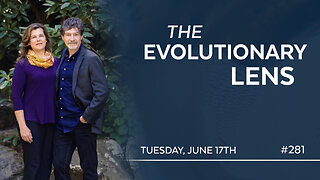
Darkhorse Podcast
3 hours agoThe 281st Evolutionary Lens with Bret Weinstein and Heather Heying
4.76K4 -
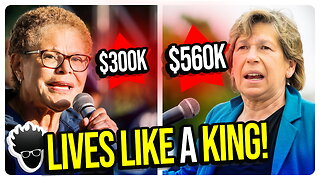 1:12:34
1:12:34
vivafrei
3 hours agoPreach Socialism! Live Like KINGS! No Kings HYPOCRITES! FBI Arrests Copycap, but Not Big Dog! & MORE
71.3K27 -
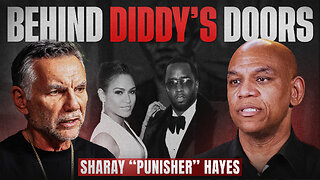 56:27
56:27
Michael Franzese
2 hours agoMale Stripper REVEALS What He Experienced in Diddy’s House
15.2K2 -
 1:56:50
1:56:50
The Quartering
4 hours agoMinnesota Assassin BOMBSHELL, Iran Israel War Splinters MAGA, Big Win For MAHA & Stellar Blade Win!
109K38 -
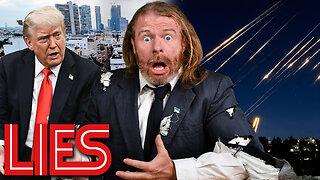 1:18:00
1:18:00
Awaken With JP
2 hours agoTrump's Base Revolts, Israel and Iran Heats Up - LIES Ep 96
32.4K28 -
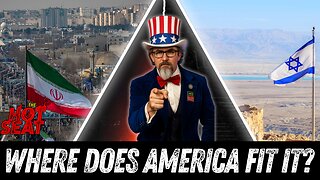 LIVE
LIVE
The HotSeat
1 hour agoIsrael Vs Iran: Where Does America Fit? Do WE?
834 watching -
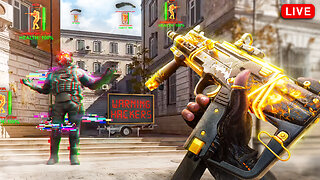 LIVE
LIVE
StoneMountain64
3 hours agoHacker Hunting in Ranked Warzone for the 1st time
292 watching -
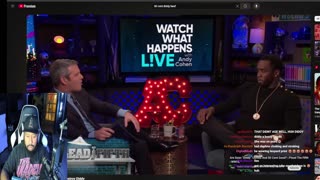 LIVE
LIVE
Akademiks
5 hours agoDiddy Trial Day 25: Brendan Paul aka Diddy Dr*g Mule to take the stand. 1 More Witness left. 2/30
1,975 watching -
 LIVE
LIVE
SpartakusLIVE
5 hours agoVerdansk Ranked with @StoneMountain64 || #1 Morning MACHINE is BACK, Halo later
112 watching